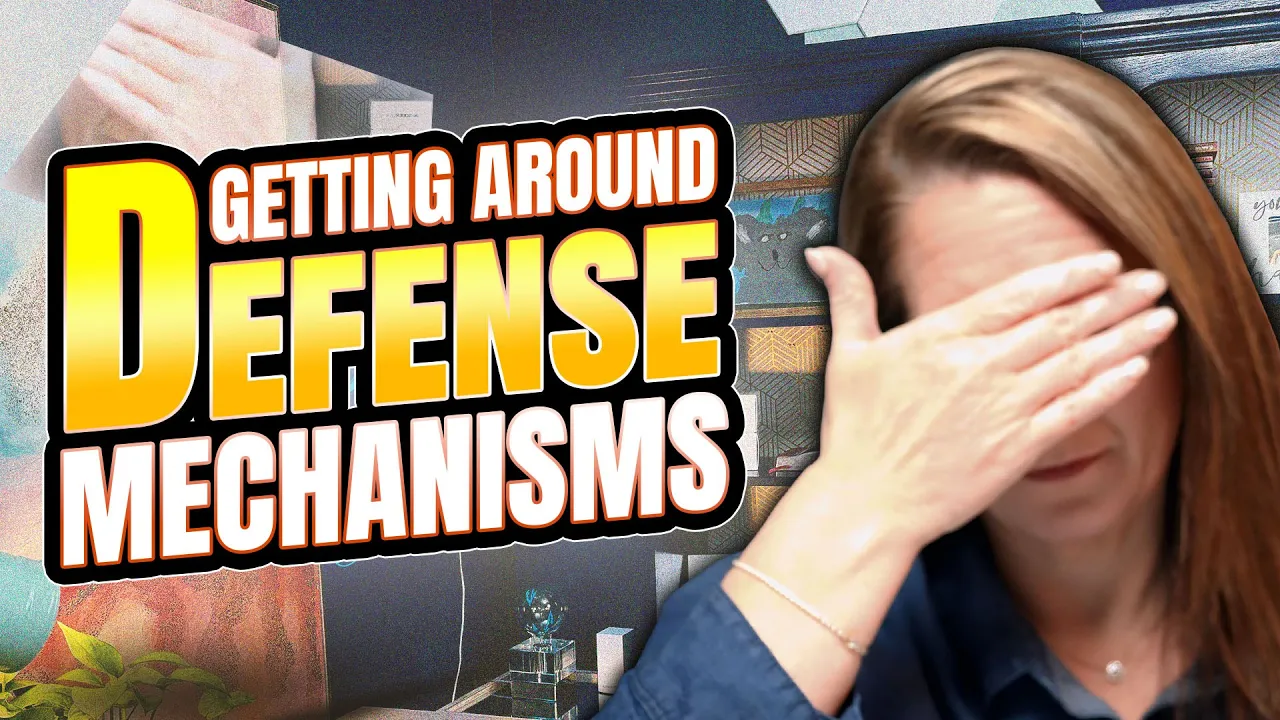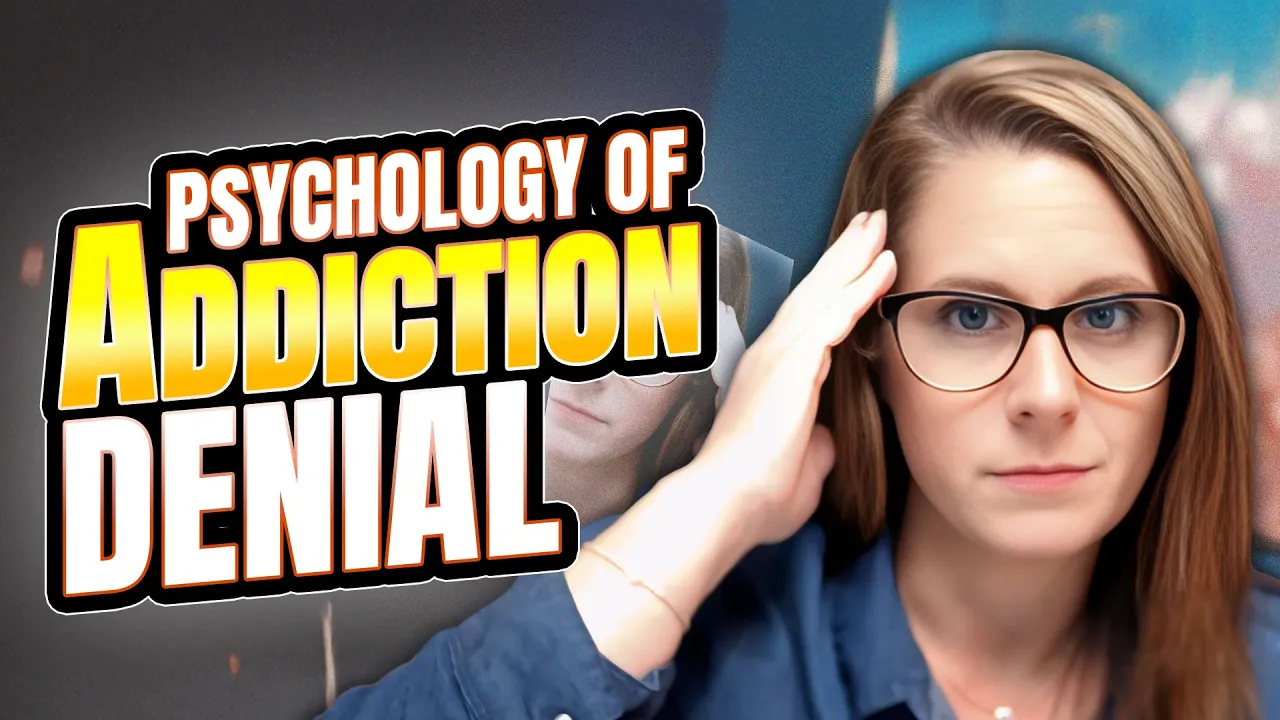The PSYCHOLOGY Behind Breaking An Addict's DENIAL | Denial Decoded Pt. 2
How to Get Someone to Face the Truth About Their Addiction — Without Pushing Them Away
Trying to help someone you love see the truth about their addiction can feel like trying to get the perfect oven temperature for a Thanksgiving turkey — too cold and nothing happens, too hot and you burn the house down.
If you’ve ever tried to confront a loved one about their drinking, drug use, or destructive habits, you know exactly what I mean.
I’m Amber Hollingsworth, and here on Put The Shovel Down, we don’t just share success stories — we break down the how and why behind addiction and recovery so you can stay five steps ahead.
Let’s talk about how to get through to someone in denial without accidentally driving them deeper into it.
Why Most Attempts to “Wake Someone Up” Backfire
Here’s the thing: your instincts might be telling you to “just lay it all out.”
To tell them how they’re ruining your life, their life, the kids’ lives — and hope that reality will snap them out of it.
But guess what?
When someone’s in denial, blasting them with truth usually triggers cognitive dissonance — that unbearable clash between who they think they are and what they’re actually doing.
And when that happens?
Their brain hits the defense mode button. They rationalize, minimize, blame-shift, or tune you out entirely.
Why Shame Turns Up the Heat Too High
Think of shame as turning the burner on high.
Shame says: “I’m a terrible, worthless person.”
And no one likes sitting in that feeling — so they escape it however they can: by numbing out, avoiding you, or doing the very thing you’re worried about.
Guilt, on the other hand, is more tolerable.
Guilt says: “I did a bad thing, but I’m not a bad person.”
That lower heat lets them sit with discomfort without burning up.
The Secret? Adjust the Temperature — And Let THEM Turn It Up
Trying to force someone to see the whole ugly truth at once is like cooking scrambled eggs on high heat: it’s gonna stick, burn, and turn into a mess.
The goal is to warm them up slowly, so they feel safe enough to peek behind their own curtain.
One of the most powerful ways to do this?
Start with empathy.
When you show you understand their side — their stress, their pain, their “yeah, but…” excuses — you lower their defenses.
And when people feel safe, they’re more willing to consider your side too.
How to Use the “Yeah, But…” Button In Your Favor
Ever notice how, the second you tell them, “You’re drinking too much, you’re gonna lose your job”, they fire back:
“Yeah, but my boss is an idiot. I hate that job anyway.”
Everyone has a “yeah, but…” button.
The trick is to see it coming and lean into it instead of fighting it.
Example:
You say: “I know work’s been hell lately, and honestly, I’d probably drink too if I were dealing with that.”
Inside, they might secretly think:
“Yeah, but I know this is out of hand. I can’t keep blaming my job forever.”
So, How Do You Get Them to See The Truth?
✅ Don’t go nuclear.
Don’t dump the entire truth at once. Small doses are more digestible.
✅ Lead with empathy.
Acknowledge their pain, their reasons, and the part of their excuses that’s true.
✅ Keep their ego intact.
People can’t change if they feel worthless — they change when they feel capable.
✅ Let them connect the dots.
Your goal isn’t to convince, it’s to create a safe space for them to see the truth.
Want To See This In Action? Take My Free Challenge
If you’re tired of being the “bad guy” and want to break the cycle, try my No More Mr. Bad Guy Challenge.
For five days, I’ll send you one quick, practical action each day.
These simple shifts will help you build trust, lower defensiveness, and create the right temperature for honesty and change.
👉 Join the Free Challenge Here
Getting through to someone in denial takes patience, but it’s possible when you understand how addiction and the human mind really work.
If this helped you, please hit the like button and share it with someone who needs to hear it. And don’t forget to subscribe to Put The Shovel Down for more practical, science-backed advice.
Amber Hollingsworth
Watch Part 1 next:
How DENIAL Is QUIETLY RUINING You | Part 1 of Denial Decoded Series
ADDITIONAL RESOURCES:
🆓FREE Downloadable Resources: https://www.familyrecoveryacademy.online/free-resources
🙋🏻♀️FB group for family members: https://www.facebook.com/groups/familyrecoverysupport
📆Make An Appointment With One Of Our Specialists: https://www.familyrecoveryacademy.online/consultations
Get 10% off Virtual Counseling with our sponsor BetterHelp 👇🏻 https://betterhelp.com/PutTheShovelDown
💯Incredibly accurate personality tests that light up your life—at home, at work, and in relationships 👉🏻 https://www.truity.com/?a=5122460
📚Amazon Book Recommendations: https://www.amazon.com/shop/addictionrecoveryresources-hopeforfamilies


